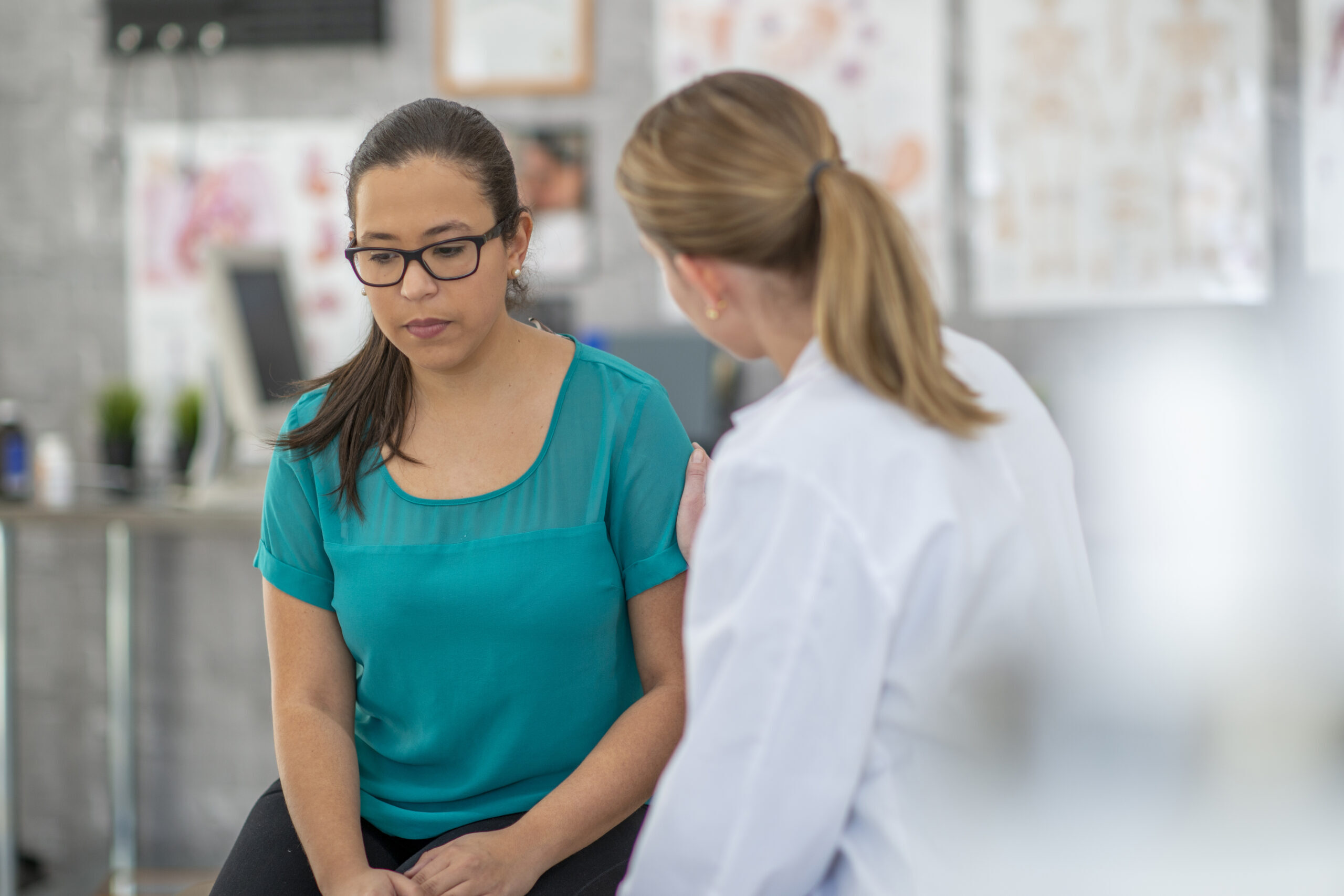OVARIAN CYST REMOVAL NEW YORK, NY
Are You Dealing With Ovarian Cyst Pain?
We’ve all dealt with minor back pain or sore ab muscles. But what happens when that pain comes on suddenly and doesn’t go away? Many women know this pain firsthand—it’s often caused by growths in the ovaries called ovarian cysts. Fortunately, cysts are easy to detect, and treatment is readily available. At MRSC, we’re dedicated to helping our Manhattan, NY patients relieve ovarian cyst pain and live life comfortably. If you believe you need ovarian cyst removal, don’t hesitate to get in touch with our team. We’re happy to provide you with compassionate, reliable care.
What Causes Ovarian Cysts?
There are several different types of ovarian cysts, and each has its own cause. Our team will perform a variety of diagnostics tests to determine the cause of your unique case. The common causes of ovarian cyst symptoms include:
- Polycystic ovary syndrome
- Pelvic infections
- Chlamydia
- Pregnancy
- Other noncancerous growths
- Cancer
Symptoms of Ovarian Cysts
At first, most women don’t notice any symptoms of ovarian cysts. However, later on, many patients start to experience bothersome symptoms that require medical care. The most common sign of a cyst is pain or pressure in the abdomen. For some patients, the pain is dull and continuous, and for others, it’s sharp and sudden. If you have any of the following symptoms in addition to pain in the abdomen, you may be dealing with an ovarian cyst:
- Ovarian cyst pain that spreads to the back and thighs
- Tenderness around the breasts
- Unexplained weight gain
- Painful sexual intercourse
- Periods that are more painful than normal
- Difficulty emptying the bladder completely
- Bloating
- Irregular vaginal bleeding

Am I at Risk?
It’s very common for women to develop cysts at some point in their lives. While most are painless, many women deal with significant ovarian cyst pain. Nearly anyone with ovaries can develop this condition, but there are several risk factors that could increase your chances of a cyst. If any of the following risk factors apply to you, discuss your risk with your doctor:
- Hormonal problems
- Endometriosis
- Severe pelvic infections
- A history of ovarian cysts
- Miscarriages

How We Diagnose Ovarian Cysts
At MRSC, we use several different methods to diagnose ovarian cysts. If you suspect you may have a growth, we’ll begin a range of tests to look for more signs of a cyst. Those diagnostic tests might include:
- Pelvic Exam: First, your doctor will likely perform a pelvic exam that looks for swelling around the ovaries. In patients who haven’t had any other symptoms, a pelvic exam is often the most effective way of finding signs of a cyst.
- Imaging Tests: We may use ultrasounds or MRIs to get a better look at your ovaries and abdominal area.
- Blood Tests: Blood tests detect signs of bleeding around the cyst, as well as pick up on signs of hormone issues.
- Biopsies: If there’s a chance your cyst is cancerous, we’ll recommend a biopsy. This test takes a tiny piece of the ovary, which is then sent to a lab to look for signs of cancer cells. Cancerous cysts are quite rare, and we likely won’t perform a biopsy if we have no reason to suspect cancer.
Get the Ovarian Cyst Treatment You Need
Ovarian cyst treatment varies greatly depending on the type and size of the cyst as well as the age of the patient. If your cyst isn’t causing you any pain, we’ll simply monitor the growth and schedule follow-up ultrasounds to catch signs of further growth early. However, if your cyst causes sharp pain and discomfort or appears to be growing, we’ll recommend more proactive treatment. For some patients, medication works well to control pain and reduce cysts. But others require more extensive surgery to remove a large, painful cyst. When you visit MRSC, we’ll consult with you and determine the best course of action for your treatment.
Consult With MRSC Today
Don’t allow abdominal pain to hurt your quality of life. The team at MRSC is here to evaluate your condition and provide ovarian cyst treatment if necessary. We’re proud to serve the New York City Metro Area, and our friendly team would be glad to schedule you an appointment. Contact us to consult with one of our experienced specialists.
